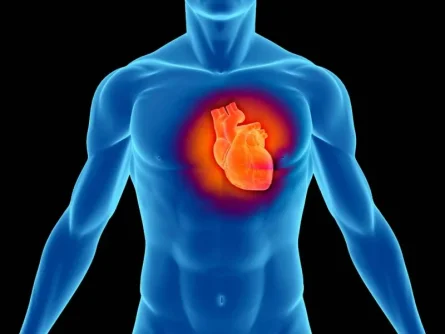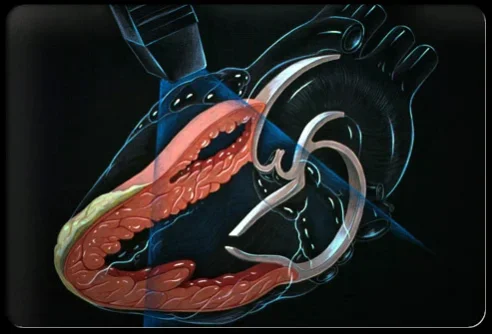Nelson Vergel
Founder, ExcelMale.com
Men with Testosterone Deficiency and A History of Cardiovascular Diseases Benefit from Long-Term Testosterone Therapy

This is a subgroup analysis of patients with a pre-existing cardiovascular disease (CVD, defined as diagnosed coronary artery disease, myocardial infarction and/or stroke). 12.4% of all patients in the registries fulfilled this criterion. During treatment with testosterone with three-monthly depot injections for a duration of up to 8 years, not a single cardiovascular event or death occurred.
All these high-risk patients with a life-threatening disease were monitored and treated for their CVD elsewhere (cardiologists, internists, general practitioners). What the urologists (the investigators of this study) did was treat patients’ hypogonadism with testosterone.
Surprisingly, the baseline situation of these patients suggested that they were far from being well managed: they were obese (mean BMI: 37 kg/m2), hypertensive (mean systolic blood pressure: 164 mmHg), dyslipidaemic (mean total cholesterol: 302 mg/dl = 7.8 mmol/L) and had poor glycaemic control (mean fasting glucose: 108 mg/dl = 6 mmol/L, mean HbA1c: 7.6%). 60% of these patients had diabetes.
With testosterone treatment in addition to the standard therapy patients were receiving, every one of the known cardiometabolic risk factors improved in a clinically meaningful, progressive and sustained fashion. The mean weight loss was 20% achieving a mean BMI of 29 kg/m2 and a mean HbA1c of 5.7%, just to name a few of the effects.
Haider A, Yassin A, Haider KS, Doros G, Saad F, Rosano GM. Men with testosterone deficiency and a history of cardiovascular diseases benefit from long-term testosterone therapy: observational, real-life data from a registry study. Vascular Health and Risk Management. 2016;12 251—61.https://www.dovepress.com/men-with-testosterone-deficiency-…
Background/objectives: Long-term testosterone therapy (TTh) in men with hypogonadism has been shown to improve all components of the metabolic syndrome. In this study, we investigated the effects of long-term TTh up to 8 years in hypogonadal men with a history of cardiovascular disease (CVD).
Patients and methods: In two urological clinics observational registries, we identified 77 hypogonadal men receiving TTh who also had a history of CVD. The effects of TTh on anthropometric and metabolic parameters were investigated for a maximum duration of 8 years. Any occurrence of major adverse cardiovascular events was reported. All men received long-acting injections of testosterone undecanoate at 3-monthly intervals.
Results: In 77 hypogonadal men with a history of CVD who received TTh, we observed a significant weight loss and a decrease in waist circumference and body mass index. Mean weight decreased from 114±13 kg to 91±9 kg, change from baseline: −24±1 kg and –20.2%±0.5%.
Waist circumference decreased from 112±8 cm to 99±6 cm, change from baseline: −13±0.3 cm. Body mass index decreased from 37±4 to 29±3, change from baseline: −8±0.2 kg/m2.
Cardiometabolic parameters such as lipid pattern, glycemic control, blood pressure, heart rate, and pulse pressure all improved significantly and sustainably. No patient suffered a major adverse cardiovascular event during the full observation time.
Conclusion: In men with hypogonadism, TTh appears to be effective in achieving sustained improvements in all cardiometabolic risk factors and may be effective as an add-on measure in the secondary prevention of cardiovascular events in hypogonadal men with a history of CVD.
https://www.dovepress.com/men-with-...lar-disea-peer-reviewed-fulltext-article-VHRM

This is a subgroup analysis of patients with a pre-existing cardiovascular disease (CVD, defined as diagnosed coronary artery disease, myocardial infarction and/or stroke). 12.4% of all patients in the registries fulfilled this criterion. During treatment with testosterone with three-monthly depot injections for a duration of up to 8 years, not a single cardiovascular event or death occurred.
All these high-risk patients with a life-threatening disease were monitored and treated for their CVD elsewhere (cardiologists, internists, general practitioners). What the urologists (the investigators of this study) did was treat patients’ hypogonadism with testosterone.
Surprisingly, the baseline situation of these patients suggested that they were far from being well managed: they were obese (mean BMI: 37 kg/m2), hypertensive (mean systolic blood pressure: 164 mmHg), dyslipidaemic (mean total cholesterol: 302 mg/dl = 7.8 mmol/L) and had poor glycaemic control (mean fasting glucose: 108 mg/dl = 6 mmol/L, mean HbA1c: 7.6%). 60% of these patients had diabetes.
With testosterone treatment in addition to the standard therapy patients were receiving, every one of the known cardiometabolic risk factors improved in a clinically meaningful, progressive and sustained fashion. The mean weight loss was 20% achieving a mean BMI of 29 kg/m2 and a mean HbA1c of 5.7%, just to name a few of the effects.
Haider A, Yassin A, Haider KS, Doros G, Saad F, Rosano GM. Men with testosterone deficiency and a history of cardiovascular diseases benefit from long-term testosterone therapy: observational, real-life data from a registry study. Vascular Health and Risk Management. 2016;12 251—61.https://www.dovepress.com/men-with-testosterone-deficiency-…
Background/objectives: Long-term testosterone therapy (TTh) in men with hypogonadism has been shown to improve all components of the metabolic syndrome. In this study, we investigated the effects of long-term TTh up to 8 years in hypogonadal men with a history of cardiovascular disease (CVD).
Patients and methods: In two urological clinics observational registries, we identified 77 hypogonadal men receiving TTh who also had a history of CVD. The effects of TTh on anthropometric and metabolic parameters were investigated for a maximum duration of 8 years. Any occurrence of major adverse cardiovascular events was reported. All men received long-acting injections of testosterone undecanoate at 3-monthly intervals.
Results: In 77 hypogonadal men with a history of CVD who received TTh, we observed a significant weight loss and a decrease in waist circumference and body mass index. Mean weight decreased from 114±13 kg to 91±9 kg, change from baseline: −24±1 kg and –20.2%±0.5%.
Waist circumference decreased from 112±8 cm to 99±6 cm, change from baseline: −13±0.3 cm. Body mass index decreased from 37±4 to 29±3, change from baseline: −8±0.2 kg/m2.
Cardiometabolic parameters such as lipid pattern, glycemic control, blood pressure, heart rate, and pulse pressure all improved significantly and sustainably. No patient suffered a major adverse cardiovascular event during the full observation time.
Conclusion: In men with hypogonadism, TTh appears to be effective in achieving sustained improvements in all cardiometabolic risk factors and may be effective as an add-on measure in the secondary prevention of cardiovascular events in hypogonadal men with a history of CVD.
https://www.dovepress.com/men-with-...lar-disea-peer-reviewed-fulltext-article-VHRM













